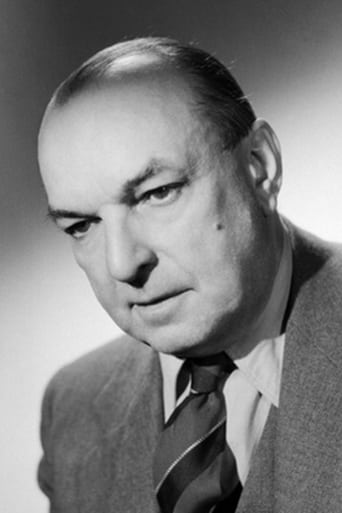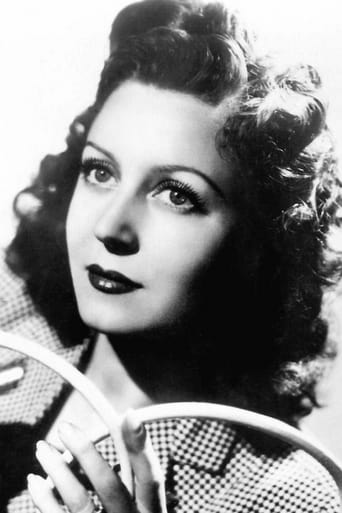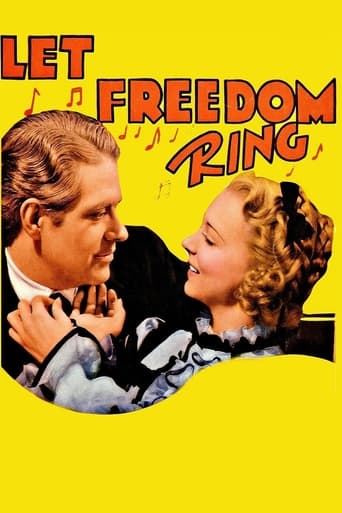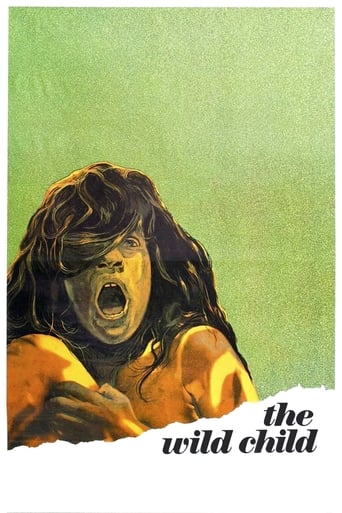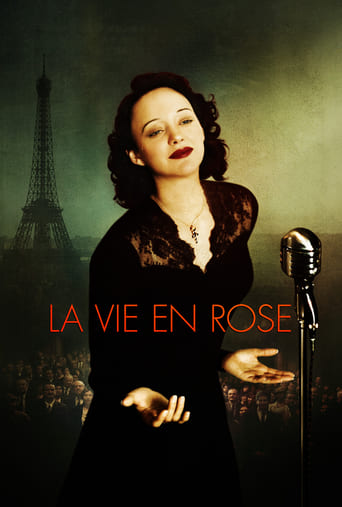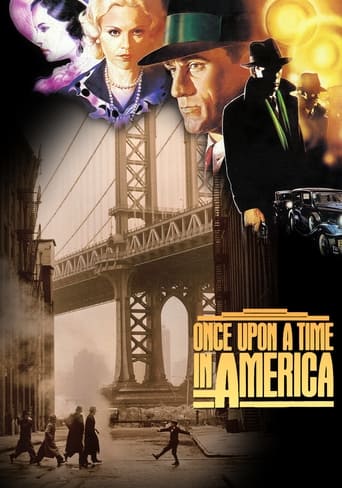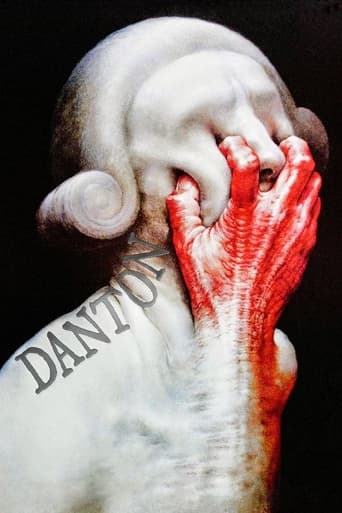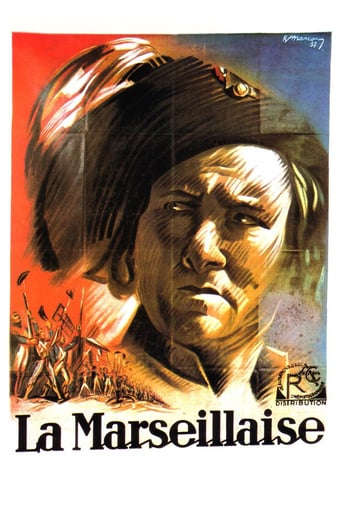
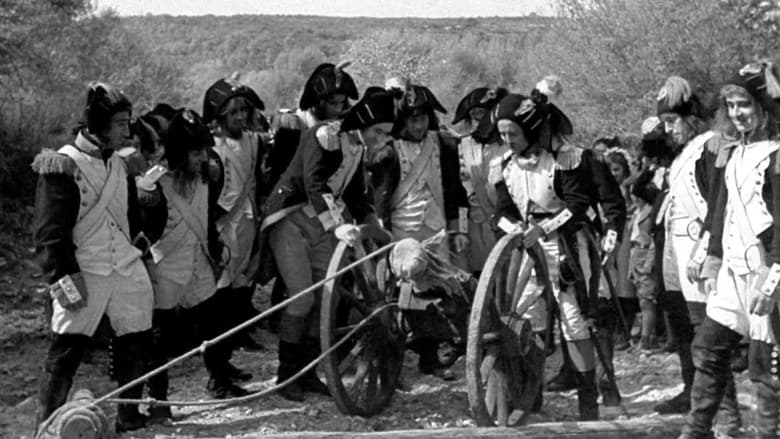
La Marseillaise (1938)
A film about the early part of the French Revolution, shown from the eyes of the citizens of Marseille, counts in German exile and, of course, the king Louis XVI, each showing their own small problems.
Watch Trailer
Cast


Similar titles
Reviews
Highly Overrated But Still Good
best movie i've ever seen.
This is a coming of age storyline that you've seen in one form or another for decades. It takes a truly unique voice to make yet another one worth watching.
It's the kind of movie you'll want to see a second time with someone who hasn't seen it yet, to remember what it was like to watch it for the first time.
La Marseillaise depicts lesser known stories attached to the events in Versailles in 1789 which led to the downfall of the monarchy. Renoir continues with a consistent stylistic system - great depth of field, two-shot closeups, framing of crowds, mobile framing, polyvocal (accents). In fact, aristocrats and citizens receive the same treatment from the camera. The exception is with the King and Queen who receive one-shot closeups, however, this seems more in the service of a dialectic regarding the Brunswick Manifesto than it being about psychological identification. This story is symbolic and likely the symbolism and abstraction is what led to the film not being as popular as was expected. There is also a confusion for the spectator because of Renoir's humanist treatment. Bumpkins are charming, aristocrats are accepting and armies more or less fight together instead of against each other. Renoir often spoke out against violence in film and this might be another disappointment for audiences at the time. Most violence is dissuaded through crafty acts of oration. The brains over brawn theme certainly lacks something of the 'common touch'. The breaking down of the song into parceled quotations reminds of the French New Wave's often lyrical and intellectual modes of expression. There is a monarchist rhetoric that runs through the film regarding order versus anarchy... yet there is little example of anarchy but also no false reprisal by monarchists against citizens. The treatment of war is tepid, but it just goes to show that Renoir was never comfortable representing hardened political positions.
"Change does not roll in on the wheels of inevitability, but comes through continuous struggle." - Martin Luther King Jr Like much of director Jean Renoir's work during this period, "La Marseillaise", which offers a romanticised retelling of the French Revolution of 1789, spends much of its time contrasting the lives of commoners with those of the aristocracy. Modern audiences will no doubt find this class baiting tedious, but such angry tracts were common in the lead up to, and wake of, the second world war (everyone from Renoir to John Huston to Rossellini to Pasolini to Pontecorvo etc). By the end of the 70s, cinema's fires of revolution, which Renoir lights here, and which were subsequently passed on from torch to torch for roughly four decades, would completely burn out.The film is divided into five chapters (The Court, The Civil and The Military Authorities, The Aristocrats, The Marseilles Locals, and The Ordinary Citizens), but essentially takes the structure of a grand march from Marseilles to Paris, a battalion of 500 volunteers arriving in time to capture The Tuileries Palace, leading to the publication of the Brunswick Manifesto and the overthrowing of Louis XVI's monarchy. With this march came "La Marseillaise", the song of the peasants, which later becomes France's national anthem.Renoir's direction is impeccable, the director adopting a naturalistic, semi-documentary tone. The film's well-choreographed battles and crowd scenes are particularly impressive. Today, its marriage of scope and sensitivity means "La Marseillaise" is still the best film to directly document the French Revolution. Martin Scorsese calls it "one of the finest and richest historical films ever made", and would borrow from it heavily for his stylish but strangely vapid pulp-revolutionary movie, "Gangs of New York".Renoir himself considered "La Marseillaise" one of his favourite films. Fittingly, it was partially sponsored by the Popular Front government of France (a coalition of leftists in power at the time) and was also financially backed by the French trade unions and the public.In terms of flaws, the film fails to get us to actually "care" about the revolution, has too much speechifying during its first hour (it eventually becomes quite stirring) and possess a brand of 1930s melodrama which modern audiences will no doubt turn their noses up to. Ironically, the most touching scene in the film is of a tortured King Louis XVI surrendering his power to the National Assembly. Visconti would be proud.What dates the film most, though, is the fact that we now firmly live in post-revolutionary times. Renoir rallies against aristocrats and their crimes against humanity, he champions for the revolution as a call to the rights of man, he reminds citizens to always be vigilant in defending liberty against tyranny, he advocates against both monarchy and nationalism, he demands that commoners be given an equal voice in government...bunch such things have a quaint, almost naive tinge nowadays.In our era of "diversity", "devolved power", "anticentralizen", "digitized capitalism", "mobilized local creativity and self organisation", there is simply no head to strike. Revolution is an art. It is an art of realising and "seizing the moment". Today, in which context is near impossible, in which moments and time itself seem increasingly fleeting, in which "culture" is one of continuous flux (or rather, the continuous rapid movement of commodities, which creates the illusion of change, of progress) and perpetual confusion, traditional revolution, as Renoir sees here, seems impossible. This is what another French director, Robert Bresson, realised with "The Devil, Possibly", and what Godard spends his career wrestling with.8/10 – Worth one viewing.
This film was an opportunity to view the French revolution from the view of the common people. Most viewers have only seen, perhaps, A TALE OF TWO CITIES or THE SCARLET PIMPERNEL, so this film does offer fresh insights. However, to me, some of the dialog and one-sidedness of the film seemed as one-dimensional as the other two movies I just mentioned.The film deals with events from 1789 to 1792 and so it really doesn't delve into the bloodier years of the Reign of Terror. It is understandable that these abuses aren't covered in depth, but to omit the be-headings completely seems rather dishonest. I'd really like to see a film that gives a balanced view of this period, but have yet to see it--and that's a shame, as it's a fascinating and tumultuous period.FYI--From my point of view as a history teacher, it does seem amazing that within only two years of the completion of this very rousing and patriotic film the French capitulated to the Nazis.
Jean Renoir's classic tribute to the glory of the French Revolution, the film captures the personal flavor of the struggle and the philosophical background to the revolutionary upheaval. In a rapid series of vignettes we are introduced to the elegance and nobility of the court of Louis XVI and Marie-Antoinette... the contrasting plight of French peasants governed by laws they cannot understand...the storming of the Bastille in 1789 by an undisciplined mob...the plotting of France's exiled nobility to return to power...the Republican march on Paris...and the capture of the Tuilleries in 1793, ending the revolution. The film follows the adventures of two young patriots who join the Peoples' army in Marseilles. As their battalion begins its long journey north to Paris to join with the Federate army, they adopt as their anthem a song from the Army of the Rhine. This song was soon to be known all over France as "La Marseillaise" and would lead the newly unified nation to victory.


